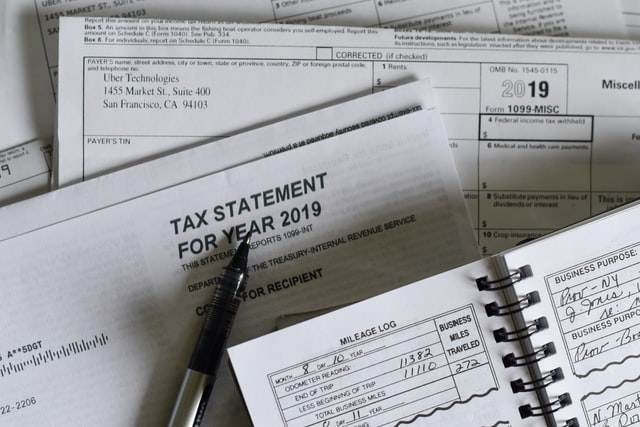The Internal Revenue Service (IRS) is the United States government agency responsible for tax collection and tax law enforcement. If you are a United States citizen or resident, it is important to understand your tax-related responsibilities. In this blog post, we will provide an overview of the IRS and discuss some of the most important things that taxpayers need to know.
1. What is the IRS, and what do they do?
The IRS is the United States government agency responsible for tax collection and tax law enforcement. They are responsible for administering the Internal Revenue Code, which is the federal statute that establishes and governs the U.S. tax system. The IRS also enforces other federal tax laws and regulations.
Some of the most important duties of the IRS include:
- Collecting federal income taxes
- Administering the U.S. tax system
- Enforcing other federal tax laws and regulations
The IRS’s primary focus is on collecting federal income taxes from individuals who earn money in the United States. They also collect payroll taxes from employers on behalf of employees. The other four divisions of the IRS are focused on different aspects of tax collection and administration, including large corporations, small businesses, charitable organizations and other non-profit entities that might be eligible for certain tax exemptions or deductions.
As part of its mission to administer the U.S. tax system, the IRS provides information about taxes and publishes forms for taxpayers to fill out when filing their annual returns each year on April 15th (unless it falls on a weekend or holiday). The IRS also publishes forms that are used by businesses and non-profit entities to report their financial activities throughout the year so they can file taxes on time each April 14th (unless it falls on a weekend or holiday).

2. What are your tax responsibilities as an American citizen or resident alien?
As a U.S. citizen or resident alien, you are responsible for paying federal income taxes on all of the income that you earn worldwide. This includes wages, salaries, tips, commissions and other forms of compensation earned in the United States or abroad. You are also responsible for paying payroll taxes on behalf of employees, as well as estate and gift taxes if you have a large estate or are planning on making a substantial gift to another person who is not related by blood.
If you do not pay your tax responsibilities, the IRS will collect them from you through various means, including but not limited to: audits and lawsuits against people who refuse to file their income tax returns or pay the taxes due on time with penalties assessed for late payment.
The IRS can also collect unpaid taxes from you by taking money directly out of your bank account without permission, seizing your property and selling it at auction to raise funds; garnishing your wages if they are paid through an employer who withholds less than what is owed; or putting a lien on your property so that no one can sell it or borrow money against it until the taxes are paid in full.
It is important to note that there are many tax deductions and exemptions available to taxpayers, which can reduce the amount of tax you owe each year. The IRS provides information about these deductions and exemptions on their website.

3. How can you prepare for tax season?
There are many ways to prepare for tax season, and the IRS provides information about how taxpayers can get ready. Taxpayers should gather all of their income statements from employers, banks and other institutions that pay them money throughout the year so they have a complete picture of what they earned before filing returns or paying taxes owed at this time. They also need receipts for any expenses related to their job or business, including mileage used on a personal vehicle while commuting between work and home as well as meals eaten out with clients/customers during business trips away from town.
4. What should you do if you receive a notice from the IRS, or if you have any questions about your tax return?
If you receive a notice from the IRS, it is important to read it carefully and take any action requested or indicated. If you have questions about the notice or how it pertains to your tax return, contact the IRS immediately for clarification. Do not ignore the notice or try to handle it on your own, as this could lead to additional penalties and interest being assessed.
If you have questions about your tax return that are not addressed in the notice, contact a qualified tax professional for assistance. They will be able to help you understand what is reported on your return, identify potential deductions or credits that could reduce your liability, and explain any other issues related to taxes in general.
5. What are some common myths about the IRS that taxpayers need to be aware of?
One common myth is that the IRS only collects taxes from people who make over a certain amount of money. While it’s true that higher income earners have to pay more in taxes, there are no thresholds for filing returns or paying federal income tax obligations at any level of earnings – everyone must do this regardless if they work full-time or part-time, are self-employed or receive income in other ways.
Another myth is that the IRS is always looking to audit taxpayers and try to catch them making mistakes on their returns. While the IRS does conduct audits every year, this process is not random – they only select returns for review based on certain criteria.
And finally, some people think that the IRS is just out to get them because they are not paying taxes or filing returns. While this may be true in some cases, many taxpayers who do pay their fair share still receive notices from the IRS for various reasons such as errors on previous years’ filings (which can result in penalties if left unchecked).
The IRS has put out a lot of information in the past few months and there is still more to come. In order to help you stay compliant, we will be releasing weekly updates with important deadlines, changes, and tips. Make sure to check back every week and mark our blog post as a favorite so you can easily find it when you need it. Do you have any questions about your tax-related responsibilities? Leave them in the comments below and we will do our best to answer them!


